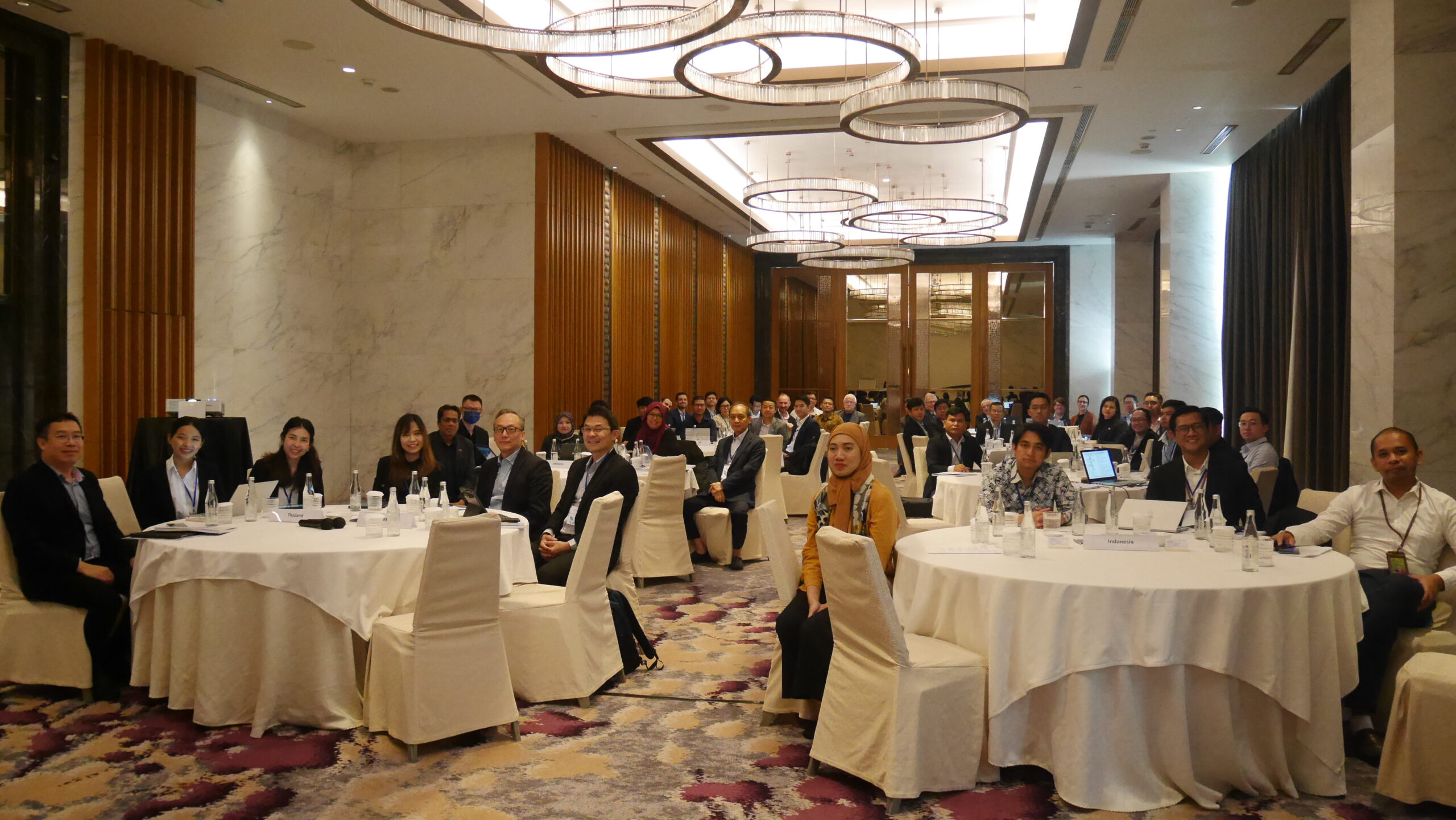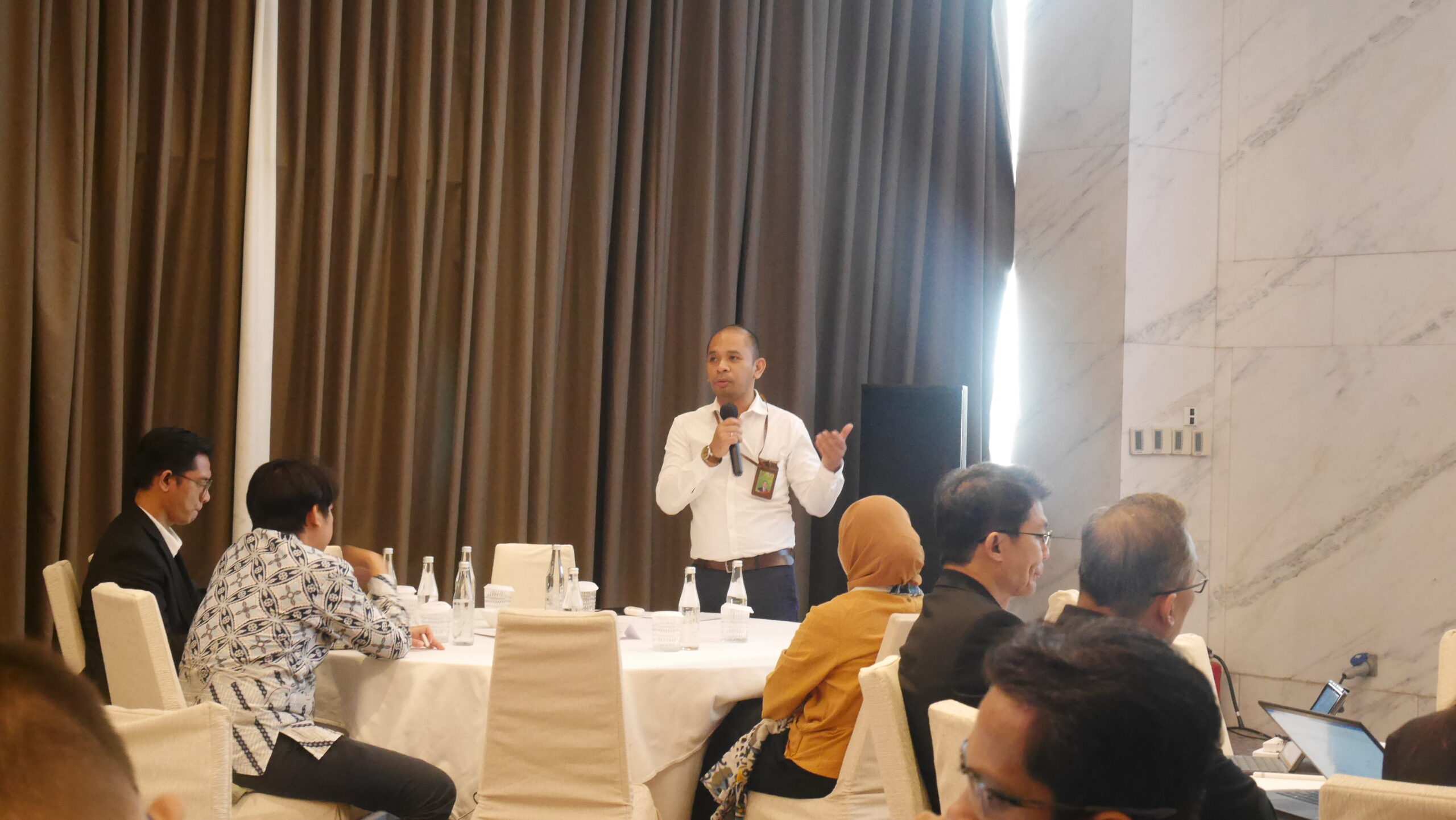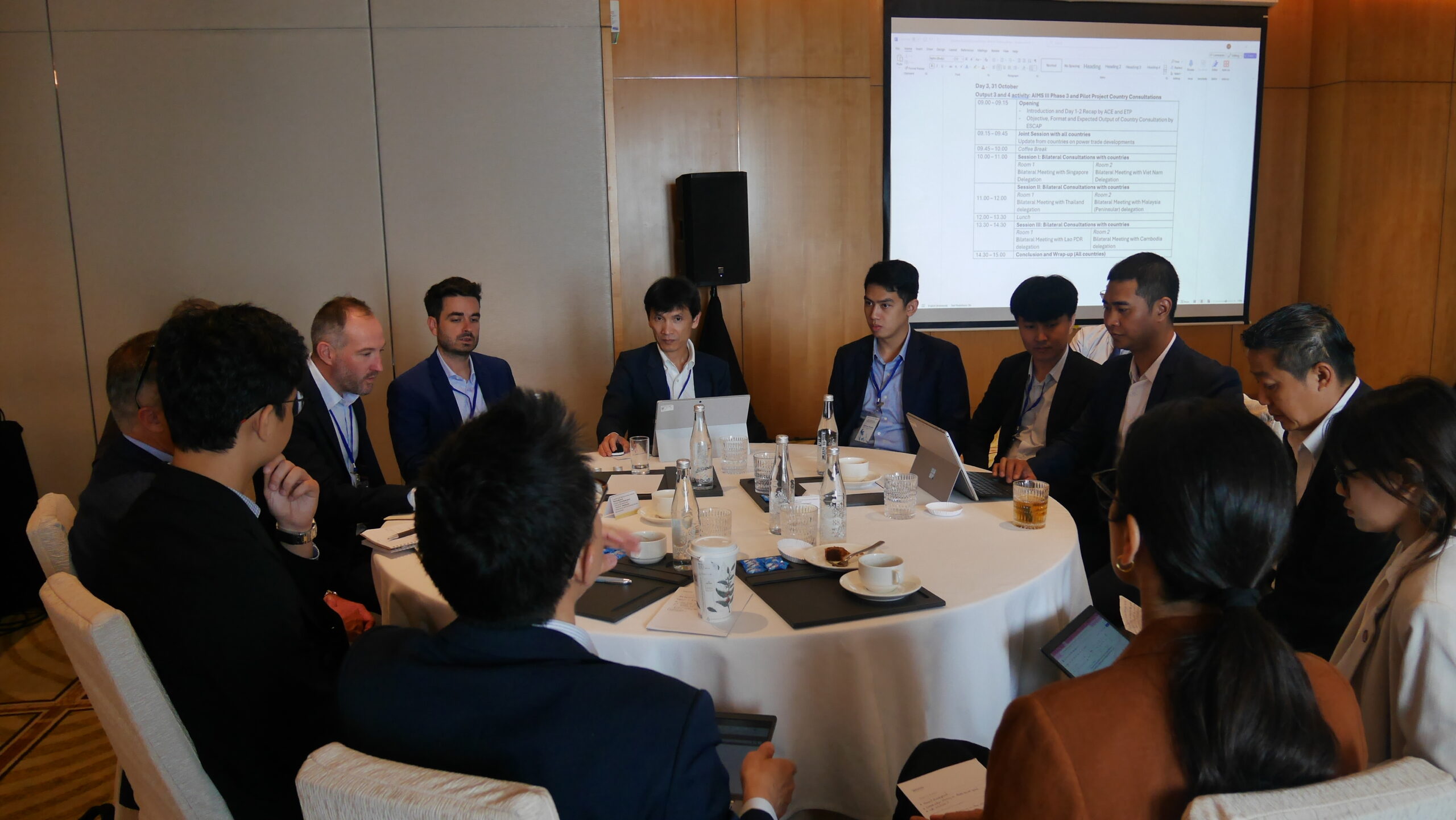Menu

Photo 1. Group Photo of the APG-AP Meeting Series Participants
The ASEAN Centre for Energy (ACE) in collaboration with the Southeast Asia Energy Transition Partnership of the United Nations Office for Project Services (ETP-UNOPS), Clean, Affordable, and Secure Energy (CASE) for Southeast Asia, and United Nations Economic and Social Commission for Asia and the Pacific (UNESCAP) successfully delivered the three-day meeting series under the ASEAN Power Grid (APG) Advancement Program initiative from 29 to 31 October 2024 in Jakarta, Indonesia. The event brought together the Heads of ASEAN Power Utilities/Authorities (HAPUA), ASEAN Power Grid Consultative Committee (APGCC), and ASEAN Energy Regulator Network (AERN) from nine (9) ASEAN Member States (AMS) to leverage its technical expertise and coordination role, strengthening the internal capacity of APG-AP to deliver its goals. The objective of the APG-AP meeting series was to disseminate the Roadmap for Multipower Trading (MPT) in ASEAN (Output 2), kick-off the work of ASEAN Interconnection Masterplan Study (AIMS) III Phase 3 with the consultants (Output 3), and to facilitate consultations with the AMS to identify country’s needs and priorities for Multilateral Power Trade pilot project implementation (Output 4). The meeting series was also organised to fulfil the ASEAN Plan of Action for Energy Corporation (APAEC) Program Area No. 1: ASEAN Power Grid.
Day 1, 29 October 2024: Output 2 activity: Workshop to ‘Operationalize the Roadmap on ASEAN Multilateral Power Trade’

Photo 2. Opening Remarks by Beni Suryadi, Acting Executive Director of ACE
The first day commenced with remarks from Beni Suryadi, Acting Executive Director of ACE delved a warm welcome to the ASEAN Member States (AMS), partners and consultants to unite efforts on the multilateral power trade (MPT) advancement in ASEAN and align the next steps within the ASEAN Power Grid Advancement Program (APG-AP). He also addressed ACE commitment’s in supporting ASEAN energy needs by building a resilient, interconnected network across ASEAN to meet their energy and climate commitments. The opening session was graced by Radomir Jansky, Deputy Head of EU Mission to ASEAN, Adritha Subbiah, Senior Program Manager Southeast Asia ETP-UNOPS, and Sascha Oppowa, Project Director for CASE project, who welcomed participants and underscored the significance of APG-AP and AIMS III Phase 3 as the region’s aspiration towards the harmonisation of grid connectivity and the establishment of a solid framework for ASEAN-wide interconnectivity.
Eric Shumway, Senior Director of shared the findings from the Roadmap on Multilateral Power Trade in ASEAN, which served as a guiding document in advancing market development in the region, highlighting essential recommendations on establishing foundational policies for MPT that will facilitate energy exchanges among AMS. In operationalising the roadmap, partners, consultants, and the AMS’ representatives agreed that working on cross-cutting aspects, such as wheeling charges, regional REC markets, and data-sharing is crucial in forming the building blocks towards MPT in the region.
Emphasising Beni Suryadi’s remarks, ACE’s commitment in supporting ASEAN’s energy needs is solidified by the progress towards the advancement of infrastructure and market development through the enhancement of interconnectivity. Supported by various development partners, the ASEAN Centre for Energy is initiating the moves towards realising the building blocks for MPT, shown by the development of data-sharing frameworks, which was presented by Akbar Dwi Wahyono, Research Analyst at ACE, and conducting feasibility studies for the Indonesia-Malaysia interconnections by Prihastya Wiratama, Project Manager of ASEAN Interconnection Projects.
Day 2: Kick-Off for AIMS III Phase 3 and Multilateral Power Trade Pilot Project
The AIMS III Phase 3 study was kicked off on 30 October 2024, with a remark from Beni Suryadi, Acting Executive Director of ACE, reiterated ACE’s commitment to accelerate the expansion of MPT in the ASEAN region as the primary objective of the AIMS III Phase 3. Three (3) work packages are included as the main aspects to be addressed in developing MPT, comprising of the minimum requirements of MPT (Work Package 1), framework for an ASEAN-wide Integrated Resource Resilience Planning (Work Package 2), and strategy for grid code harmonisation (Work Package 3). The meeting was also introduced to two (2) consultants that will assist the analytical work of AIMS III Phase 3, which are Ricardo PLC – supporting the Work Package 1 – and DNV – for Work Packages 2 & 3.

Photo 3. Break-out Group Discussion with AMS representatives and AIMS III Phase 3 consultants
During the breakout session, the AMS discussed the main challenges in developing MPT, from technical to governance issues. The member states stressed the urgency for a clear protocol to ensure a safe and secure sharing of granular data and the importance of transparency in determining the wheeling charges calculation. Additionally, most of the breakout groups agreed that a region-wide grid code is currently not mandatory to be established at the current stage, but a minimum technical standards/ interconnection code is a must-have to ensure the quality of exported/ imported power. All in all, both Ricardo PLC and DNV acknowledged the issues that the AMS faced and stands ready to provide solutions through the AIMS III Phase 3.
Day 3: AIMS III Phase 3 and Pilot Project Country Consultations

Photo 4. APG-AP Country Consultations with AMS, partners and consultants
Continuing the previous APG-AP Country Consultations in Brunei Darussalam (3 September 2024), the final day of the meeting series focused on consulting the needs and priorities of the AMS on cross-border projects and market development to identify a new or expanded potential multilateral power trade (MPT) pilot project in the region. This country consultations were meant to align the AMS’ priorities and needs on cross-border trading with the potential of the development of MPT. From exploring the benefits of cross-border trading, discussing regulatory challenges, to examining operational challenges, cross-border power exchange and market-driven solutions seem to be the key approaches to achieving energy security.
In conclusion, Nadhilah Shani presented the next step, summarised the bilateral sessions, outlined AIMS III Phase 3 analytical work, and defined the communication protocols. Shani expressed gratitude to AMS representatives for their active engagement, reaffirming APG-AP’s objectives as set forth to advance the APG as outlined in the ASEAN Plan of Action for Energy Cooperation (APAEC). Together, this collaborative momentum propels ASEAN towards a resilient and interconnected energy future.
